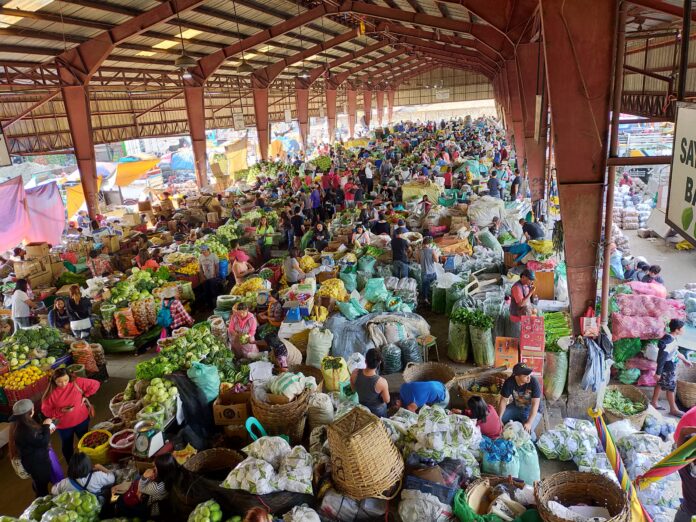Online platforms such as Facebook page are being utilized for strategic marketing to further assist the farmers in the Cordillera Administrative Region (CAR) in selling their vegetable produce amidst the Enhanced Community Quarantine (ECQ).
One of this is the Rural Rising Ph, a Facebook page used as a platform to link farmers and consumers. The driving force which leads to the creation of the Rural Rising Ph as an accidental vegetable dealer started with a viral Facebook post with 6,000 shares. This viral post lamented about the sad plight of Cordillera farmers who are forced to give or throw away their unsold produce.
The page is being managed by Ace Estrada and Andie Estrada of Baguio City. It has now 28,000 followers and a Facebook group of resellers and buyers with 3,000 members.
“DA has been very crucial to our mission not only in provided logistical support but for identifying the farmers who are most deserving of our business because of their honesty and the fierce pride they take in their community and the quality of their produce” he added.
The online platform linked with the Cordilleran farmers through the Kadiwa Express. Estrada said that they called the DA-CAR as they wanted to be linked with local farmers. To date, they have already three transactions under the Kadiwa Express being facilitated by the Agribusiness and Marketing Assistance Division (AMAD). These were recorded on May 16, 18, and 19, 2020.
On May 16, they bought 4,000 kilograms of banana from Paracelis, Mt. Province. It was followed by marketing of 4, 400 assorted vegetables from Tinoc, Ifugao such as squash, Chinese cabbage, and carrots 1,400 kilograms of this was tomatoes. Their third transaction was with the Eddet Farmers Indigenous and People Association in Kabayan, Benguet wherein they bought 1,530 kilograms of assorted vegetables.
The DA-CAR also facilitated the transport of agricultural products from pick-up point to drop-off points, mostly in Manila.
Mr. Estrada said that the farmers experienced difficulty in transporting their products because of the ECQ and that the buyers are unable to reach them. Thus, they utilized the Facebook group as a marketing platform to reach out to both stakeholders.
He stressed that they buy vegetables from distressed farmers and pay them the right or even higher price for their harvest.
“We truly believe that agriculture is the most vital way for our economy to recover faster, and by collectively contributing to food security and rural prosperity we could make the most immediate and lasting impact”, he added.
Likewise, Martina Tanawe, tomato farmer from Eheb, Tinoc, Ifugao said that the direct buying of their vegetable produce has helped them to earn a profit during the crisis to buy for their essential needs.
She said they have really experienced difficulty in selling and transporting their vegetable produce to the extent of donating it to the Local Government Units (LGUs) as relief instead of throwing it.
“Dakkel launay ti naitulong na ti Rural Rising Ph ken DA tapnun mailakko met daytoy naburas nga kamatis, iti daytoy a panawen sapay kuma ta agtultuloy daytoy ken adu pay a mannalon ti matulungan da (This is a big help from the Rural Rising Ph and DA to sell our harvested tomatoes during this time and we hope that it will be continuous more farmers will benefit.),” she added.
Aside from buying from Cordillera farmers, the Rural Rising Ph also reaches out to other farmers outside the region such as the squash farmers in Nueva Ecija.
To date, a total of 568.85 metric tons of assorted vegetables amounting to Php17.14 Million pesos were already sold by linking 10 private groups and 10 LGUs under the Kadiwa Express.

